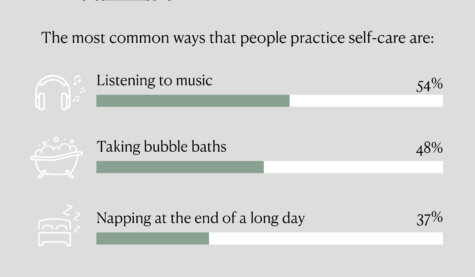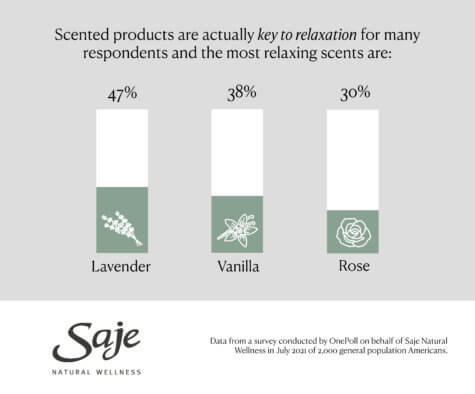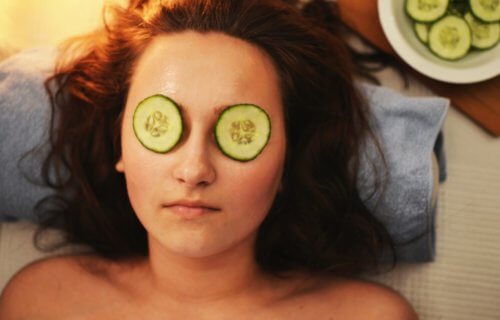NEW YORK — Nearly a third of Americans have been so caught up with work, life and kids, that they haven’t had a day to relax alone in more than three months.
A survey of 2,000 Americans looked at how people like to exercise self-care, with answers ranging from listening to music (54%), to taking bubble baths (48%), to napping at the end of a long day (37%).
Before a long day, people also like to make the most of the morning hours (50%) and set the mood by wearing comfortable clothing (55%) and playing music (47%). Nearly half the poll feels the most relaxed in their bedrooms (49%). Some people like to wind down by using body care products such as bath bombs or candles, but 27 percent who purchase these items don’t use them until two weeks later.
Conducted by OnePoll on behalf of Aroma (Be) Free by Saje Natural Wellness, researchers find that 65 percent admit that they would like to spend more time on self-care but feel they don’t have the downtime to make it a routine.
People feel overwhelmingly busy or tired three days a week
 Although people agree that they should practice self-care four days a week, 67 percent can’t stick to that. A third would even give up social media (32%) to practice more self-care and another 24 percent would sacrifice their favorite food.
Although people agree that they should practice self-care four days a week, 67 percent can’t stick to that. A third would even give up social media (32%) to practice more self-care and another 24 percent would sacrifice their favorite food.
If people had more time, they’d want to spend it listening to more music (40%), taking more baths (39%) or going out for long drives (31%).
Self-care doesn’t have to be extravagant, though, and can mean different things to people — like getting a haircut, arriving at appointments on time, or incorporating a simple healthy habit into their life like meditation or using essential oils.
Most Americans agree that an important part of self-care is prioritizing your mental health during the week (85%). Three in four think every employer should offer mental health days (76%) and the average person has taken three mental health days off from their job within the last year.
People prefer to take care of their mental health by keeping active (47%), getting plenty of sleep (43%), and managing their stress (41%).
“Self-care is just as much about your emotional well-being as it is about your physical health and the health of your environment, such as your home, your community, or the world at large,” says Janelle Shiplett, vice president of marketing at Saje Natural Wellness, in a statement. “Prioritizing each of these three dimensions of wellness every day is critical to making sure you’re setup with resources and practices to deal with stress when it inevitably comes around.”
Some like to get experimental with their self-care routines, with nearly one in three purchasing body care tools like manicure/pedicure sets or massaging tools (32%). Seven in 10 add they’d practice self-care more if they found interesting products to help them do so.
The cost of relaxation
 Some are even willing to splurge on the cause; on average, people would be willing to spend more than $200 a year on products that would help them feel their best. However, some well-loved products still top the list, like candles (40%) or essential oils (31%).
Some are even willing to splurge on the cause; on average, people would be willing to spend more than $200 a year on products that would help them feel their best. However, some well-loved products still top the list, like candles (40%) or essential oils (31%).
Scented products are actually key to relaxation for many respondents, with nearly four in five citing that scent can influence the way they feel (78%) and another 32 percent agreeing that scent is the sense most strongly linked to their memories. The most calming scents are lavender (47%), vanilla (38%), and rose (30%).
“Many neuroscientists and aromatherapists agree that out of all our senses, it’s smell that has the strongest link to memory and emotions,” Shiplett adds. “The aromatic properties of essential oils offer so many wellness-enhancing benefits, so whether you’re someone who enjoys a nap at the end of a long day or a relaxing bubble bath, our cordless diffuser is a great way to enhance these self-care rituals no matter where they take place.”
